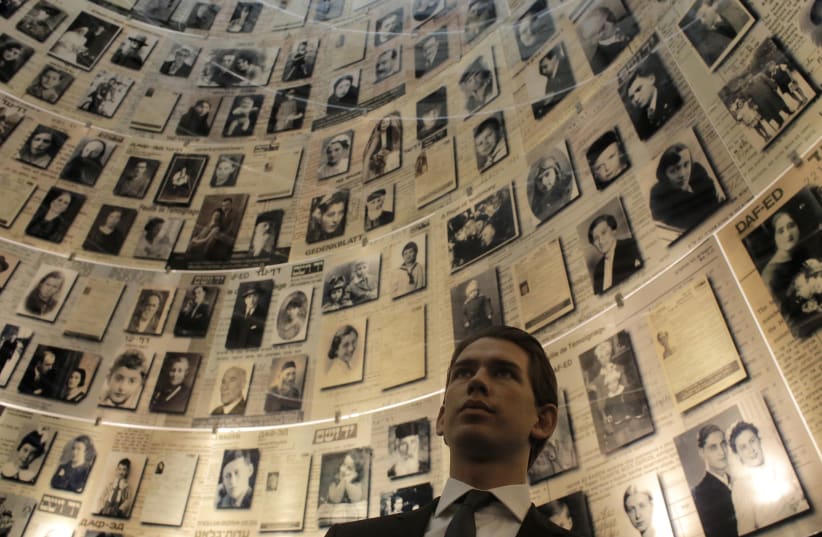“Austria has a special historical responsibility never to forget the terrible crimes of the Holocaust and is committed to the security of Israel and its citizens,” Kurz wrote in his post. “We actively support Jewish life in our country and fight against any form of antisemitism. Only if Jews can live unreservedly in peace, freedom and security can a ‘Never Forget’ become a ‘Never Again.’”Kurz said he will meet Prime Minister Benjamin Netanyahu “to deepen our bilateral relations,” will address the American Jewish Committee’s annual Global Forum that will be meeting in Jerusalem, go to Yad Vashem and also meet Austrian Holocaust survivors.Kurz and Netanyahu last met in February, on the sidelines of the Munich security conference.Up until now, Israel has maintained a non-engagement policy with the FPÖ because of its Nazi past – it was founded in 1956 by former Nazis – and the antisemitic and racist leanings of some of its members. In 1999, Israel recalled its ambassador to Vienna for more than three years because the party, then headed by Joerg Haider, joined the governing coalition.The FPÖ’s current leader, Vice Chancellor Heinz-Christian Strache, has made efforts to distance himself from the antisemitism of his party’s past and put forward strong pro-Israel positions that have been interpreted in Jerusalem as an effort to get Israel’s “stamp of approval,” something that would help him gain legitimacy elsewhere.Austria’s organized Jewish community adamantly opposes the FPÖ and is against any Israeli engagement with the party.Both Kurz and Strache on Sunday attended an event commemorating the 73rd anniversary of the liberation of the Mauthausen Concentration Camp.In March, at a speech marking the 80th anniversary of the Anschluss – when the Nazis rolled their tanks into Austria and were met by adoring, saluting and cheering Austrians – Kurz acknowledged it has taken Austria a long time to be “open and honest” about its past.Kurz said that Austria’s historical responsibility toward the Jews extends to Israel, a comment never made before by an Austrian chancellors – a group that has included pro-Palestine Liberation Organization Bruno Kreisky and former Nazi Kurt Waldheim.“We also have a special responsibility to the State of Israel and the security needs of the Jewish people there more than we have practiced in Austria in the past,” Kurz said at the time.Gemeinsam mit BM #Faßmann werde ich im Juni nach #Israel reisen. #Österreich hat eine besondere historische Verantwortung dabei, die schrecklichen Verbrechen des #Holocaust niemals zu vergessen & ist der Sicherheit Israels und seiner Bürger verpflichtet. 1/3
— Sebastian Kurz (@sebastiankurz) May 6, 2018
Austrian chancellor to visit Israel despite coalition partner's Nazi past
“Austria has a special historical responsibility never to forget the terrible crimes of the Holocaust and is committed to the security of Israel and its citizens,” Kurz wrote in his post.
